‘Drug culture, irrelevant, laughing stock’: Inside the dark days at the Gold Coast Suns
Ross Lyon sparked a war of words when he referred to Gold Coast as the AFL’s nepo baby. The Suns called it offensive but uncovered documents reveal how footy’s perennial basket case believed it was perceived by rivals.
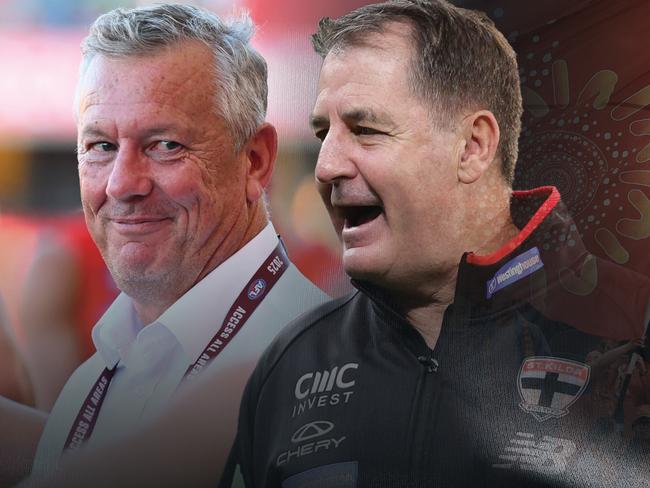
Never did the blurry lines between the administration of the Gold Coast Suns and their masters at AFL House come clearer into focus than during the cocaine crisis that engulfed the basket case expansion club 10 years ago.
Hours after photographs of star midfielder Harley Bennell snorting lines of white powder were splashed across the front page of Melbourne’s Herald Sun, Bastion - a sports marketing and public relations firm with strong links to AFL chiefs - sprung into action.
Bastion documents reveal the firm began providing “reputation support and counsel” to the Suns in July 2015.
Just a month earlier, Bennell’s teammate, NRL code-hopper Karmichael Hunt, had implicated another 12 Suns players in an explosive Queensland Crime and Corruption Commission cocaine investigation.
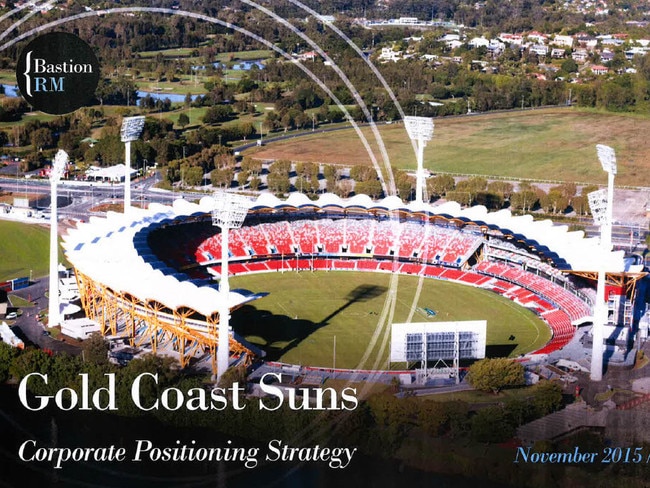
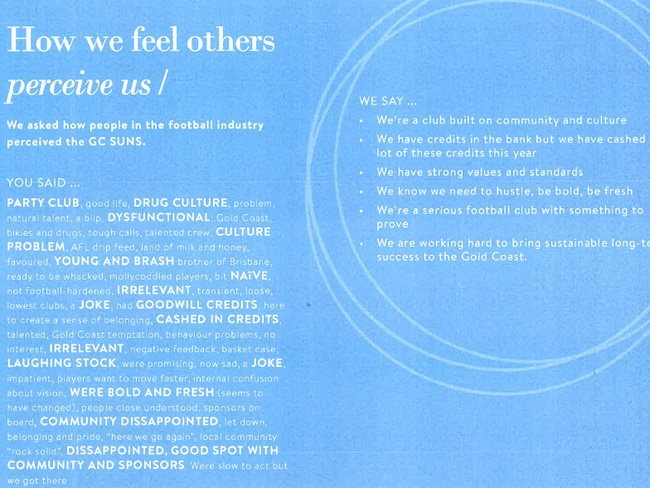
In November that year, Bastion produced a “Gold Coast Suns corporate positioning strategy”, which detailed how poorly the crisis-plagued AFL club was perceived and the steps it needed to take to win back respect.
“Party club, good life, drug culture, dysfunctional, bikies and drugs, AFL drip feed, land of milk and honey, favoured, mollycoddled players, not football hardened, irrelevant, loose, a joke, basket case, laughing stock, were promising now sad,” the damning report, co-authored by then-Bastion Reputation Management executive Brian Walsh, declared.
The Suns had sunk into the abyss and the boys at Bastion sniffed business.
A 2015 “Implementation and budget plan” reveals Bastion’s proposal to charge Gold Coast $84,000 a month (including GST) for “Phase 1” of its “long-term strategic plan for the club to strengthen its brand reputation within the AFL”.
“Phase 2” - from January to March 2016 was budgeted at $63,000 per month (plus GST of $21,000 a month) and “Phase 3 … April and ongoing” would cost $12,000 per month.
Among those with Bastion shareholdings at the time were former AFL chief executive Andrew Demetriou, football broadcaster Hamish McLachlan - the brother of ex-AFL boss Gillon McLachlan - and Walsh, the league’s long-time corporate affairs chief who moved from Bastion back to the AFL in August 2019.
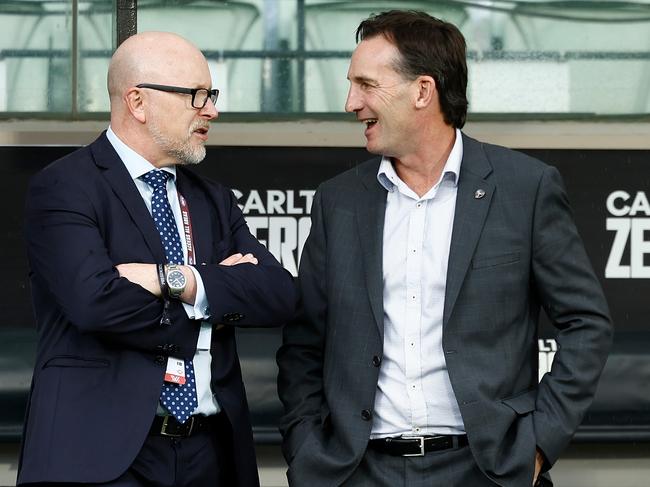
Another document shows Bastion even prepared a script in 2016 “to assist” then Suns’ skipper Gary Ablett on how to handle a Channel 7 interview.
St Kilda coach Ross Lyon probably didn’t know any of that when he triggered a war of words during a brief pre-match interview last Sunday by describing the Suns as “the AFL’s nepo baby”.
In stark contrast to Greater Western Sydney, footy’s younger brother expansion team that invested heavily in player welfare and retention strategies (and has featured regularly in September), the Suns have been the poster boys of administrative mistakes and miscalculations. A drag on the competition.
But after 14 seasons of handouts and abject failure, the tide appears to have turned at the Gold Coast.
Second-year coach Damien Hardwick has instilled a harder edge and more professional attitude into a deeply talented playing list.
Key to the transformation of the Suns was a bonanza bailout package of draft, list and academy concessions granted by the AFL commission in 2019 on top of hundreds of millions of dollars in funding - all without a hint of an apology from those responsible at AFL HQ for the strategic errors that had cruelled the club.
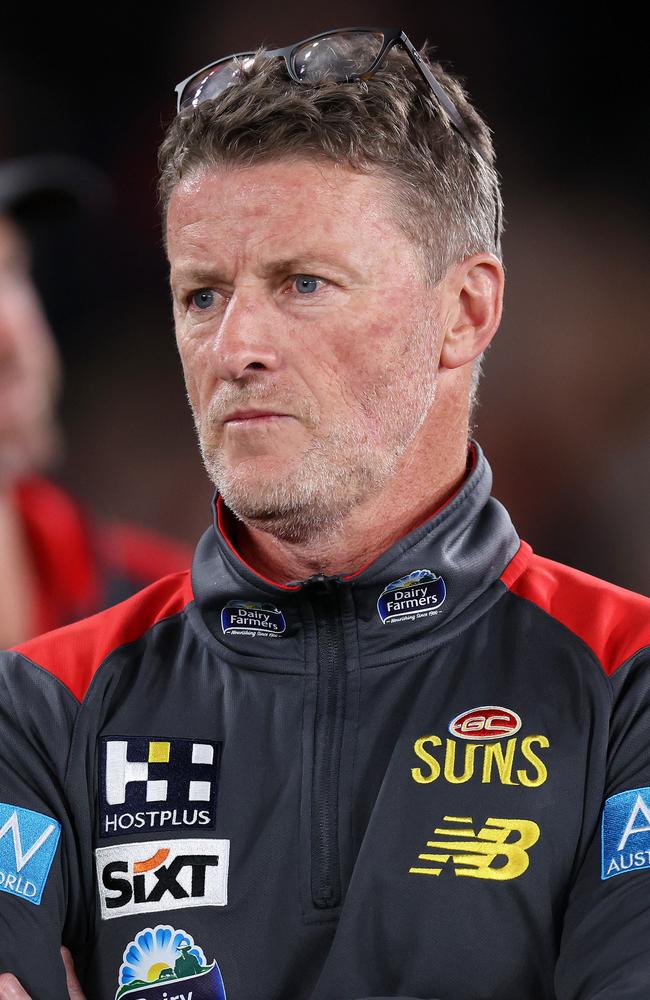
The Suns’ emergency bounty included three years worth of prized priority picks and the awarding of Darwin as a regional academy, giving them exclusive access to the Top End’s best talent without having to match bids on draft night.
They were also permitted to sign up to 10 rookies.
St Kilda would do well to stop sooking publicly about the ongoing advantages afforded to the Suns (given they massively overrated the state of their own list after sacking Brett Ratten and appointing Lyon in October 2022), but their concerns are not without basis.
Academies and the looming addition of a 19th team in Tasmania will only further compromise future national drafts.
A competitive club on the Gold Coast, in the NRL heartland of south-east Queensland, is a critical component of a thriving AFL national competition, but it is indisputable that rival clubs have paid a heavy price for the incompetence of the Suns.
Hardwick handled it with aplomb when asked about Lyon’s “nepo baby” barb after St Kilda’s poorly attended game at Marvel Stadium.
“Trust me, I’ve played, been at Richmond. I’ve come to the Gold Coast – we don’t get a lot,” he said.
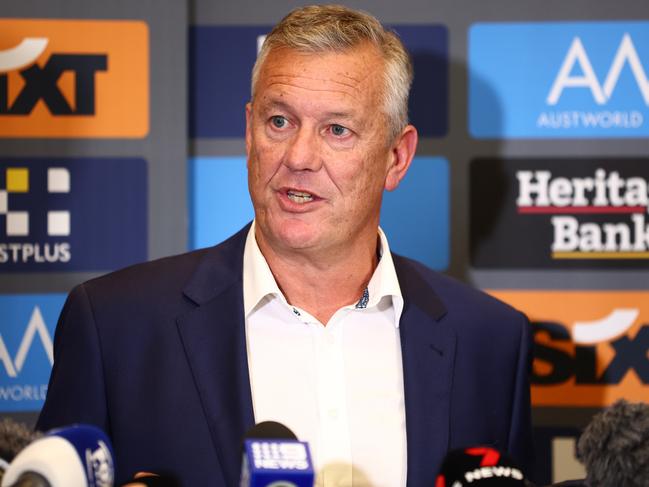
“What probably St Kilda should do is make sure they focus on their own backyard instead of trying to bring everyone else down. We had 13,000 people here today.”
Compare that to the trademark histrionics of Gold Coast chief executive Mark Evans - the man they call the “Puffer Fish” for his notoriously short fuse - who blew it all out of proportion, first by confronting Saints counterpart Carl Dilena on the way to the rooms and again the next morning on SEN.
“This felt like a jab at the club and its character and overlooked all of the hard work it has taken to get ourselves into a position where we are not in the bottom reaches of the ladder,” Evans said without a skerrick of irony.
The Suns are finally on the march but cannot ignore the past and all the benefits they have accrued from years of ineptitude along the way.




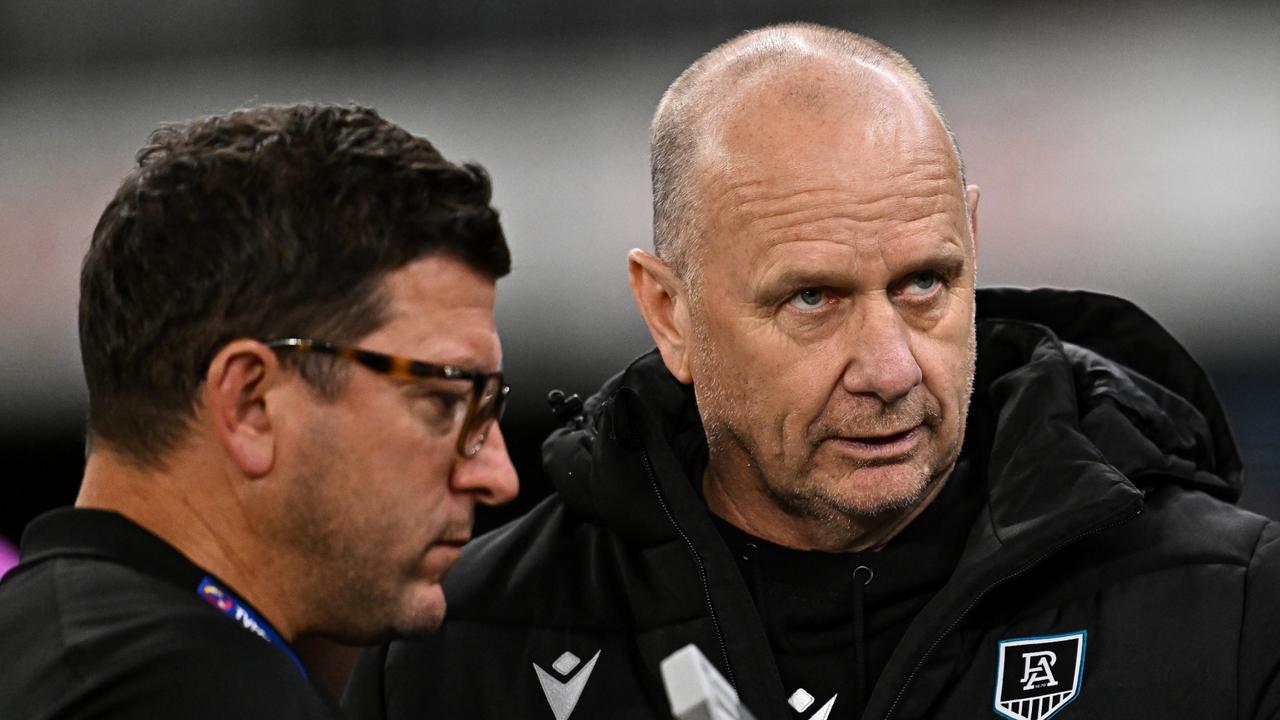
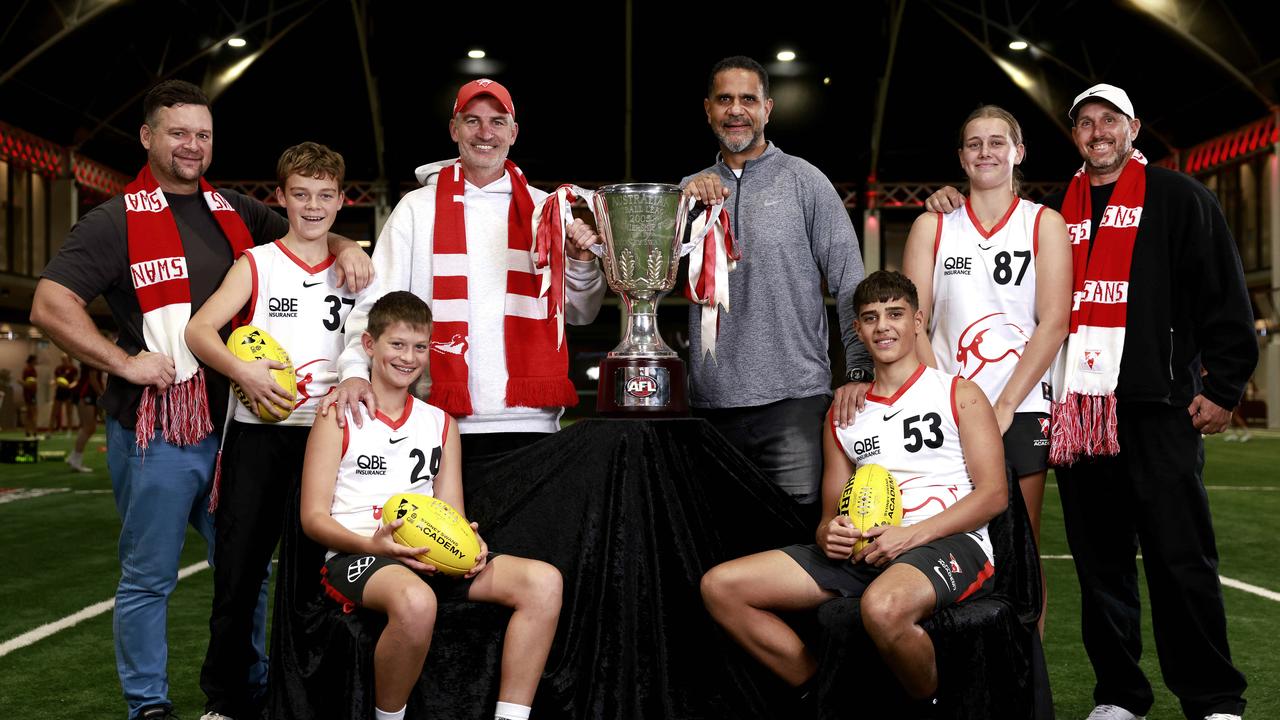
To join the conversation, please log in. Don't have an account? Register
Join the conversation, you are commenting as Logout